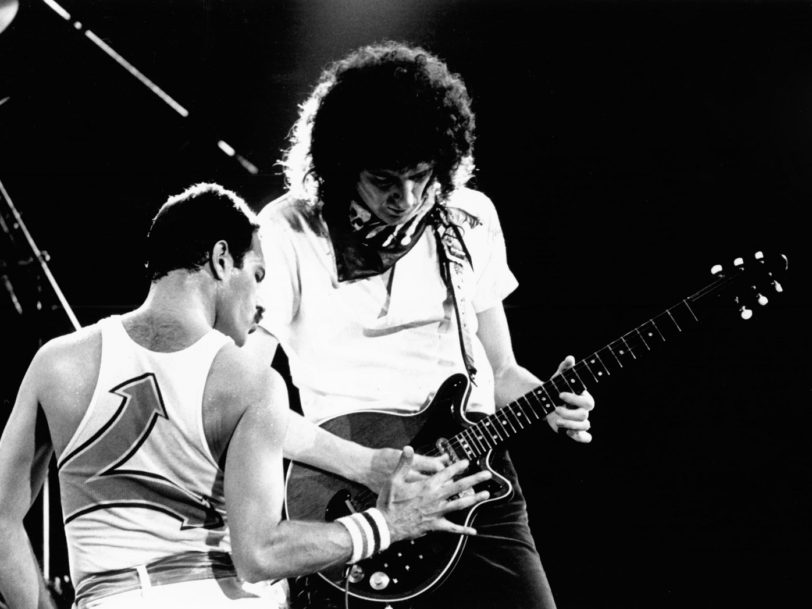Many musicians have revolutionised music and helped define their respective eras. From zesty riffs to sprightly strumming, the thrum of distortion ringing out from six steel strings affixed to a piece of wood has never failed to awaken gig-goers to the transformative power of music. By plugging into their amps and cranking up the volume, the best guitarists of all time have also often harnessed flamboyant stage antics to their awe-inspiring musical prodigiousness, leaving us hungry for more life-changing experiences to satiate our appetites. These 20 iconic players electrified the world – and are still worth turning up to 11.
Listen to our Rock Classics playlist, here, and check out our 20 best guitarists, below.
20: Johnny Marr
With his shimmering jangle-pop riffs complementing singer Morrissey’s bone-dry lyricism, The Smiths’ guitarist, Johnny Marr, spent much of the 80s as a luminary of the Manchester indie scene. The whirling sonic assault of How Soon Is Now? and the sparkly opening riff of This Charming Man amply demonstrate why Marr held such sway: he expertly combined the dour sunglasses-wearing demeanour of Keith Richards with the funk-tinged minimalist tones of Nile Rodgers. By uniting shoplifters of the world through his ringing guitar sound, Marr helped turn The Smiths into the band of a generation. Without Johnny Marr’s vivaciousness, the best The Smiths songs wouldn’t continue to be as inspiring or enduring as they are today.
Must hear: How Soon Is Now?




